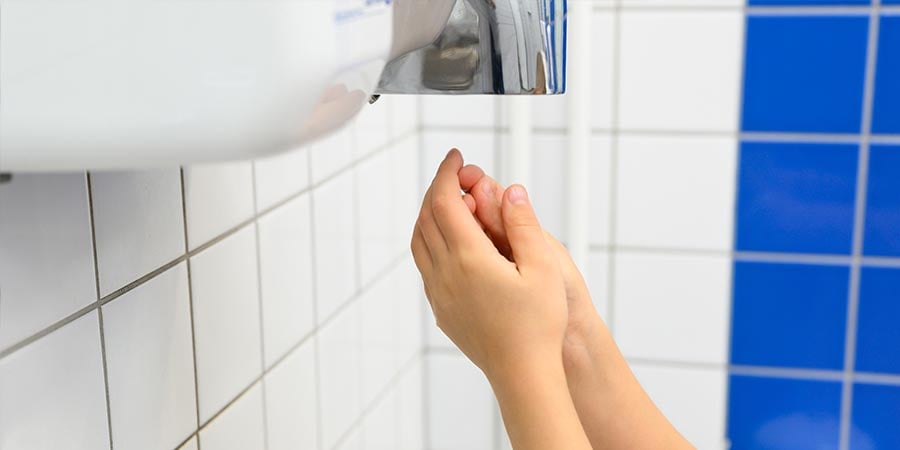Cold and flu season is winding down, but that doesn’t mean the danger of infectious disease has passed. Highly publicized disease outbreaks in the last decade have put people on edge, and they look to healthcare facilities for knowledge on how to prevent the spread of disease. Here are some lingering myths about disease prevention that are important to dispel.
Myth: Antibacterial is Always Better
Antibacterial products are everywhere: from soap to cleaning products, public, private, and professional spaces are inundated with products that claim to kill most to all harmful bacteria on a surface when used. This may sound like the best way to prevent the spread of disease, but can actually cause more problems than it solves.

The first danger is the simple fact that not all infectious diseases are caused by bacteria. Illnesses that are caused by viruses are not affected by antibacterial products at all, and frequent use of these products can create a false sense of security that can backfire in the case of a viral outbreak.
The second potential danger of antibacterial products is the frequent inclusion of the ingredient triclosan. Triclosan is currently under investigation by the FDA and EPA regarding its long-term effects on human health and hormone levels, as increased exposure leads to more demands for research.
The third, and perhaps most widely known, danger of antibacterial products is their contribution to creating bacterial resistance. Widespread use of antibacterial chemicals allows bacteria to develop resistances more quickly, making it harder to treat infections and illnesses. This problem will only get worse with time, as bacteria evolve quickly, which has created a pushback against antibacterial products throughout the world.
When choosing products for a healthcare facility, avoid antibacterial products for general use, and use specific products only in necessary situations, such as disinfecting patient care rooms or washing hands after contact with a patient.
Myth: Hand Sanitizer Cleans Your Hands
Awareness campaigns and recent disease outbreaks across the country have increased the usage of hand sanitizer by healthcare professionals and everyday consumers alike. While alcohol-based hand sanitizers do reduce microbe levels quickly and effectively, they are not the convenient solution to infection control and disease prevention that many people think.

Washing your hands with soap and water is still the best way to eliminate germs on your hands. Hand sanitizers do just that - sanitize - and can’t remove dirt, grime, oil, or grease that can harbor infectious microbes. The CDC recommends hand washing in most situations, and when that option isn’t available, opt for an alcohol-based sanitizer that contains at least 60% alcohol.
That being said, making hand sanitizer available throughout the facility, especially in waiting areas, and areas with high visitor traffic, can help raise awareness of how everyone can prevent the spread of disease.
Myth: Air Dryers are More Sanitary than Paper Towels
The truth is that there’s not much evidence to support the claim that air dryers are more sanitary than paper towels, or that paper towels are more sanitary than air dryers. Proponents of air dryers say that fewer contact surfaces and less environmental impact give them a clear advantage over paper towel, while paper towel advocates say that air dryers simply disperse infection-bearing water droplets throughout the bathroom. Unfortunately, it’s a debate that has no winning side; when used correctly, either method of drying your hands is effective for lowering disease transmission rates.

For healthcare facilities with air dryers, hold your hands still beneath the air stream without rubbing them together, as rubbing can bring your freshly-washed hands into contact with parts of your arm that have not been washed. If bathrooms are equipped with paper towel, opt for a touchless dispenser and a covered waste receptacle, as infectious germs and bacteria are transferred from your hands to the paper towel as you dry them. The most important thing is that hands are dried at all, as some diseases spread quickly through moisture and touch.
Whether you’re educating the public or the people in your facility, it’s critical to get the facts straight about disease prevention. Want to know more about limiting the spread of infection? Download our whitepaper about the tools you can use.
